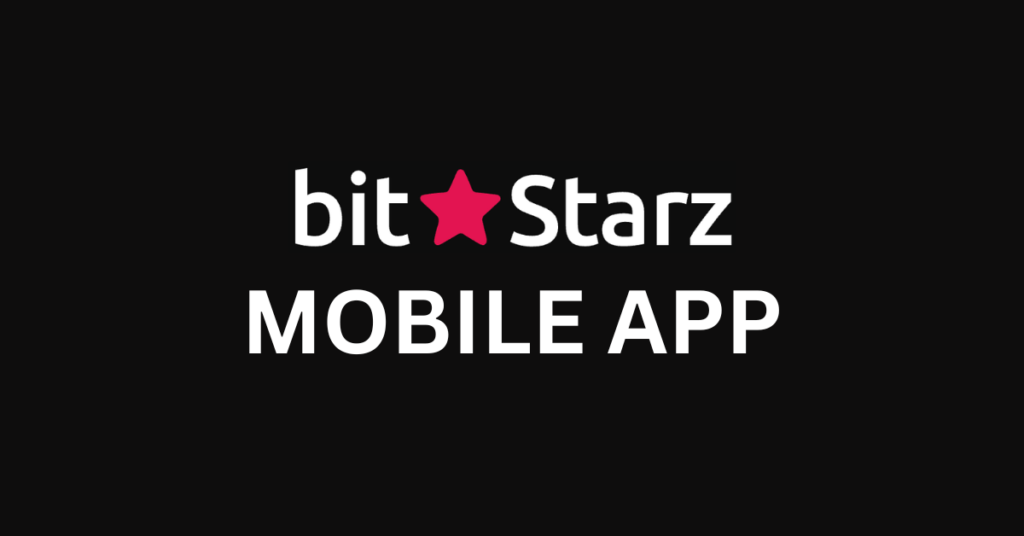Binance, the prominent cryptocurrency exchange, recently disclosed its latest proof-of-reserves (PoRs) on August 1, showcasing transparency in its crypto holdings.
However, a significant development in its USD Coin (USDC) reserves raised eyebrows and sparked discussions on X (formerly Twitter).
Despite concerns, the recent reserve audit indicated that Binance holds an ample amount of cryptocurrency and cash to cover user funds.
The snapshot revealed that Binance’s net balances exceed 100% of its customers’ net balances for all assets, indicating a healthy financial situation.
Yet, the focus of discussions revolved around the movements in Binance’s USDC reserves after the collapse of Silvergate and the depegging of the stablecoin.
The PoR highlighted a drastic decrease in Binance’s USDC balance from $3.4 billion on March 1 to $23.9 million by May 1.
It was revealed that Binance initiated the internal conversion of customers’ USDC to Binance USD in September.
However, during that time, the exchange still held a significant amount of USDC in its reserves.
On-chain data pointed out that following Silvergate’s collapse on March 12, Binance swiftly converted its USDC reserves into Bitcoin (BTC) and Ether (ETH).
According to Twitter on-chain analyst Aleksandar Djakovic, Binance acquired approximately 100,000 BTC and 550,000 ETH between March 12 and May 1, amounting to around $3.5 billion, which coincided with the surplus of USDC in their reserves.
Despite queries from Cointelegraph, Binance remained unresponsive at the time of reporting, leaving the crypto community pondering the significance of these USDC reserve movements.
Coinbase CEO Brian Armstrong’s remark during the company’s Q2 earnings call meeting added to the intrigue.
Armstrong quipped that Binance had sold USDC for another stablecoin, further fueling discussions around the issue.
Proof-of-reserves (PoRs) have emerged as a popular method for crypto exchanges to demonstrate their holdings transparently to the public.
This approach gained traction after the collapse of FTX crypto exchange, raising calls for increased transparency in the crypto ecosystem.
The downfall of FTX in November 2022 had shaken the industry, with founders initially claiming a sound financial situation before its collapse.
In conclusion, Binance’s recent proof-of-reserves revealed a healthy financial situation overall, but the movements in its USDC reserves after Silvergate’s collapse became a focal point of discussion.
The crypto community emphasized the importance of transparency in the aftermath of the FTX debacle, prompting exchanges to disclose their holdings openly through PoRs.
Other Stories:
2024 Presidential Candidates’ Mixed Views on Crypto
Chamber of Digital Commerce Releases Report on SEC vs Ripple Ruling
Digital Currency Group Faces Regulatory Scrutiny Over Transactions with Genesis Global Capital
Huobi, a prominent cryptocurrency exchange, experienced significant outflows totaling $64 million from August 5 to 6, amid persistent rumors surrounding its solvency and potential investigations by Chinese authorities.
As a result of these outflows, the exchange’s total value locked (TVL) decreased to $2.5 billion at the time of reporting, down from $3.09 billion on July 6.
The rumors initially surfaced on August 4, suggesting that Huobi’s leadership in China had been arrested due to alleged involvement with gambling platforms.
A spokesperson from Huobi swiftly dismissed these claims as fake news when speaking with Cointelegraph.
The rumors come in the context of growing scrutiny and tighter control over cryptocurrency exchanges within mainland China.
While at least one C-level executive has left Huobi in recent weeks, it remains uncertain whether this departure is related to the investigations in China.
The exchange’s head of social media also refuted the rumors on a social media platform, stating that Huobi is currently performing well.
Additional concerns about Huobi’s financial situation have been raised by Fintech executive and angel investor Adam Cochran.
He highlighted inconsistencies in the exchange’s Tether (USDT) holdings. Cochran referred to on-chain data from DefiLlama, indicating that Huobi held less than $90 million in assets across USDT and USD Coin (USDC) on August 5.
In contrast, Huobi’s latest “Merkle Tree Audit” claimed that users had $630 million in USDT held and a wallet balance of $631 million USDT. Cochran concluded that Huobi is potentially insolvent.
Despite these claims, Huobi has yet to respond to Cointelegraph’s request for clarification regarding the rumors of insolvency and discrepancies between on-chain data and its audit report.
In addition to the solvency concerns, Huobi faces challenges in other jurisdictions.
In May, the Malaysian securities regulator took enforcement action against the exchange, resulting in the closure of its operations in the country.
The situation surrounding Huobi remains fluid as investors and regulators closely monitor the developments.
The exchange’s reputation and stability are at stake as it navigates through the uncertainties surrounding its financial standing and potential legal issues in China and beyond.
Other Stories:
Coinbase CEO Affirms Commitment to US Amid Regulatory Uncertainty
Latvia Sees Decline in Crypto Asset Purchases Amidst Concerns Over Fraud and Money Laundering
There are dozens of crypto and Bitcoin casinos, but which is best in 2023? We have tried out and reviewed all of the most popular online crypto casinos, and concluded that the ones below are best.
We ranked each casino on a number of factor, including trustworthiness, variety of games and coins, speed of payouts, and bonuses.
Note: Some of the crypto casinos are available to players in the US, while some don’t allow US-based players. We have mentioned this for each of the casinos reviewed below.
Without further ado, let’s dive into our updated ranking of the best crypto and blockchain casinos of 2023.
1) Bitstarz
Bitstarz is an online casino that stands out in the crowded field of online gaming sites. Founded in 2014, it has become popular with players for a variety of reasons. In this overview, we’ll explore Bitstarz’s games, customer service, security features, promotions, payment options, and more.
Games
Bitstarz offers over 2,600 different games, ranging from traditional casino fare like slots and table games to innovative and engaging virtual experiences.
With a selection that spans everything from classic fruit machines to the latest 3D slot games, it’s an appealing option for all types of players.

The casino features games from a wide array of software providers, including big names like Microgaming, NetEnt, and Betsoft.
Whether you prefer card games like poker or blackjack, roulette, or something more unique like live dealer games, Bitstarz likely has something to satisfy your taste.
Customer Service
One of Bitstarz’s most praised features is its robust customer service. Support is available 24/7 through live chat, email, and phone.
They have a reputation for providing prompt, courteous, and effective assistance. Their support team is trained to help with everything from technical issues to questions about games and promotions.
Security
Bitstarz has implemented a number of measures to ensure the security of its users. The site uses SSL encryption to protect personal and financial information. It also complies with GDPR regulations to safeguard privacy.
The casino is licensed by the government of Curacao, and they work with various independent bodies to verify the fairness of their games. They have even won awards for their commitment to integrity and transparency, helping to build trust within the online gaming community.
Promotions
Bitstarz is known for offering appealing promotions and bonuses to both new and existing players. Their welcome package can be particularly enticing, with deposit bonuses and free spins available.
They also run regular promotions like tournaments, reload bonuses, and seasonal offers. These can add extra excitement and value to the gaming experience, and they provide incentives for players to return.
Payment Options
A standout feature of Bitstarz is its support for cryptocurrency. Along with traditional payment methods like credit cards and e-wallets, players can deposit and withdraw using Bitcoin, Ethereum, and other popular cryptocurrencies.
This offers enhanced privacy and sometimes quicker transaction times. It also makes the casino more accessible to players in regions with restrictive online gaming laws.
Mobile Experience
Bitstarz has ensured that their site is fully optimized for mobile devices. This allows players to enjoy their favorite games on the go, whether through a mobile browser or a dedicated app. The mobile experience is smooth and intuitive, retaining all the features that make the desktop version appealing.
Summary
Bitstarz represents a modern and well-rounded online casino. With a wide game selection, strong customer support, secure and diverse payment options, and exciting promotions, it’s not hard to see why it has become a favorite among players.
Their commitment to transparency and integrity sets them apart in an industry where trust is paramount. By embracing technology, such as cryptocurrencies, and focusing on delivering a high-quality user experience, Bitstarz stands as an example of what a contemporary online casino can be.
As with any online gambling platform, it’s important for players to be aware of the laws and regulations in their jurisdiction and to gamble responsibly.
Bitstarz’s robust support and informational resources can assist players in making informed decisions, adding to its appeal as a trusted and enjoyable place to play.
Overall rating: 9.6/10
2) BC.Game
BC.Game is an online cryptocurrency casino that has quickly gained popularity within the gaming community.
Overview
Established in 2017, BC.Game offers a wide variety of casino games, including slots, table games, and live dealer experiences. Unlike traditional online casinos, BC.Game operates exclusively with cryptocurrencies, offering an array of options for deposits and withdrawals.
Games
BC.Game boasts a comprehensive list of games catering to different preferences. Here’s a breakdown:
- Slots: They offer a range of slot games, from traditional to contemporary themes.
- Table Games: Classic casino games like blackjack, roulette, and poker are well-represented.
- Live Casino: Engaging live dealer games provide an immersive experience.
- Proprietary Games: Unique to BC.Game, these games are developed in-house and offer innovative and exclusive gaming experiences.
Cryptocurrencies
BC.Game supports various cryptocurrencies, including Bitcoin (BTC), Ethereum (ETH), Litecoin (LTC), and many others. This allows players from various regions and preferences to participate without worrying about currency conversion.

Security
Security is paramount in online gaming, and BC.Game implements several measures to ensure the safety and privacy of its users:
- Encryption: Utilizing SSL encryption, personal and transactional data are kept secure.
- Provably Fair: The provably fair algorithm allows players to verify the fairness of each game played.
- Compliance: Adhering to the legal requirements in the jurisdictions they operate in.
Bonuses and Promotions
BC.Game provides several incentives for both new and existing players:
- Welcome Bonus: New players are typically greeted with deposit matches or free spins.
- Daily Tasks and Rewards: Regular players can complete daily tasks to earn rewards.
- VIP Program: A tiered VIP program offers additional benefits and bonuses for loyal players.
Mobile Experience
Understanding the growing demand for mobile gaming, BC.Game offers a mobile-friendly website that’s accessible through browsers on smartphones and tablets. This ensures that players can enjoy games on the go without compromising on quality.
Community and Support
BC.Game fosters a community atmosphere, providing chat rooms where players can interact. The platform also offers robust customer support, available 24/7 through various channels like live chat and email.
Responsible Gaming
The platform emphasizes responsible gaming, providing tools and resources to help players gamble within their means. This includes setting deposit limits, loss limits, and self-exclusion options.
Challenges and Criticisms
While BC.Game has seen significant success, it has also faced criticisms:
- Regulatory Concerns: The decentralized nature of cryptocurrencies can create legal and regulatory challenges in certain jurisdictions.
- Limited Traditional Payment Methods: The exclusive focus on cryptocurrencies might deter players unfamiliar with or skeptical of digital currencies.
Conclusion
BC.Game represents a contemporary approach to online gaming, capitalizing on the growing interest in cryptocurrencies. By offering a wide array of games, robust security measures, and community-focused features, the platform caters to a diverse and global audience.
However, the focus on cryptocurrencies, while innovative, may pose challenges, both in terms of regulatory compliance and broad appeal. The future success of BC.Game may hinge on its ability to navigate these challenges and continue to evolve in a rapidly changing industry.
As with any online casino or financial service, potential users should conduct thorough research and consider their own risk tolerance and legal obligations before engaging with the platform.
Overall rating: 8.3/10
3) 7Bit Casino
In the fast-evolving world of online gambling, casinos are constantly vying for the attention of players seeking both entertainment and potential winnings. Among these digital gambling establishments, 7Bit Casino has garnered attention for its unique features, expansive game selection, and commitment to user experience.
Founded in 2014, 7Bit Casino has steadily climbed the ranks to become a prominent player in the online casino industry. In this comprehensive review, we will delve into the various aspects that set 7Bit Casino apart, from its game offerings and security measures to its promotions and customer support.
Game Selection and Software Providers
At the heart of any successful online casino lies its game selection, and 7Bit Casino certainly does not disappoint. With a wide array of games spanning various categories, players are spoiled for choice. The casino offers an extensive library of slots, ranging from classic fruit machines to modern video slots with intricate themes and innovative features.
Players can also indulge in table games such as blackjack, roulette, baccarat, and poker, each presented in various versions to cater to different preferences.
One notable aspect of 7Bit Casino’s game selection is its emphasis on high-quality software providers. The casino has partnered with some of the most renowned names in the industry, including Microgaming, NetEnt, Betsoft, Play’n GO, and Evolution Gaming.
This strategic collaboration ensures that players can enjoy games with captivating graphics, engaging gameplay, and fair outcomes, all backed by the reputation of reputable developers.
Cryptocurrency Integration
One of the standout features that distinguish 7Bit Casino from its competitors is its integration of cryptocurrency as a payment method. In a time when digital currencies are gaining more acceptance, 7Bit Casino has embraced this trend by allowing players to deposit, wager, and withdraw using various cryptocurrencies, including Bitcoin, Ethereum, Litecoin, and more.
This integration not only caters to players who prefer using cryptocurrencies but also adds an extra layer of security and anonymity to transactions.
The utilization of cryptocurrencies also expedites the withdrawal process. Traditional payment methods can sometimes be hindered by processing delays due to banks or other financial intermediaries. Cryptocurrency transactions, on the other hand, are typically faster, allowing players to receive their winnings promptly.
Security and Fairness
In the world of online gambling, security and fairness are paramount concerns for both players and operators. 7Bit Casino addresses these concerns by implementing rigorous security measures to protect sensitive data and ensuring fair play through the use of provably fair technology.
The casino employs advanced encryption protocols to safeguard players’ personal and financial information. This ensures that sensitive data, such as credit card details and personal identification, remains confidential and secure from potential cyber threats.
Moreover, 7Bit Casino employs provably fair technology, which allows players to verify the fairness of game outcomes. This transparency instills confidence in players, as they can independently confirm that the results of games are not manipulated in favor of the casino.
Provably fair technology is especially important for online casinos, as it bridges the gap of trust between players and operators.
Bonuses and Promotions
Like many online casinos, 7Bit Casino offers a variety of bonuses and promotions to attract and retain players. New players are typically greeted with a welcome package that includes a combination of deposit bonuses and free spins. These incentives provide players with extra funds to explore the casino’s offerings without significantly increasing their initial investment.
Additionally, 7Bit Casino often runs ongoing promotions, such as reload bonuses, cashback rewards, and special tournaments. These promotions not only enhance the overall gaming experience but also offer players more opportunities to win and engage with the casino’s offerings.
It’s important to note that all bonuses and promotions come with terms and conditions, including wagering requirements and maximum withdrawal limits. Players should carefully review these terms to ensure they can make the most of the bonuses without any surprises.
Mobile Compatibility and User Experience
Recognizing the increasing popularity of mobile gaming, 7Bit Casino has optimized its platform to be accessible on various devices, including smartphones and tablets. The responsive design ensures that players can enjoy their favorite games on the go, without compromising the quality of the gaming experience.
The user interface is designed to be intuitive and user-friendly, making navigation through the casino’s various sections seamless. Players can easily browse through games, access their account information, and manage their funds without encountering any major hurdles.
Customer Support
Quality customer support is a hallmark of any reputable online casino, and 7Bit Casino takes this aspect seriously. The casino offers multiple channels for customer support, including live chat, email, and a comprehensive FAQ section. The live chat feature allows players to connect with a support representative in real-time, addressing their queries and concerns promptly.
Additionally, 7Bit Casino provides support in multiple languages to cater to its diverse player base. This commitment to ensuring a positive customer experience contributes to the overall satisfaction of players.
Conclusion
In the competitive landscape of online casinos, 7Bit Casino has managed to stand out through its diverse game selection, cryptocurrency integration, robust security measures, and player-focused approach.
The integration of cryptocurrency payments showcases the casino’s adaptability to emerging trends, while its collaboration with top-tier software providers ensures a high-quality gaming experience.
The emphasis on security, transparency, and fairness further solidifies 7Bit Casino’s reputation as a trustworthy platform for online gambling. From bonuses and promotions to efficient customer support, the casino’s dedication to user satisfaction is evident in every facet of its operations.
As players continue to seek online gambling experiences that combine entertainment, convenience, and the potential for winnings, 7Bit Casino’s commitment to innovation and excellence positions it as a strong contender in the ever-evolving world of digital casinos.
Overall rating: 8.0/10
Coinbase, the prominent U.S. cryptocurrency exchange, disclosed its second-quarter results on August 3, revealing a net loss, but also some positive developments.
Notably, operating expenses were reduced by 13% compared to the previous quarter, and the company’s cash reserves received a 3% boost, reaching $5.5 billion.
However, the exchange faced challenges, experiencing a $97 million net loss, worse than the previous quarter, and a 32% decline in adjusted EBITDA, which stood at $194 million in Q2.
One of the downsides was a 7% decrease in subscription and service revenue from the first quarter, partly attributed to a 28% decline in the market cap of USD Coin (USDC). Coinbase has a stake in Circle, the issuer of USDC, which means it benefits from the interest rate offered by the stablecoin reserves.
Additionally, interest income from customer fiat balances deposited at the exchange dropped by 16% to $201 million in Q2.
Despite these challenges, Coinbase appears to be reducing its reliance on trading fees. Subscription and service revenues now match trading revenues, indicating a shift towards becoming a service-oriented platform that prioritizes recurring income.
Looking at Coinbase’s share price throughout 2023, it remains unclear whether investors recognize this strategic shift, and it is possible that they still believe trading fees will remain the primary revenue driver for the company.
However, several potential events on the horizon could significantly impact Coinbase’s revenue streams.
READ MORE: Gulf Nation Nears Implementation of Virtual Asset Regulations
If Tether (USDT), the largest stablecoin, faces legal troubles and loses its banking partnerships, it could create an opportunity for USDC to fill the void, leading to increased service revenue for Coinbase.
Similarly, if Binance, a major competitor, faces regulatory shutdown, Coinbase could gain a substantial increase in market share and boost its service revenues.
Additionally, the potential launch of Bitcoin spot exchange-traded funds (ETFs) in the United States could create a new source of revenue for Coinbase.
Furthermore, Coinbase has plans to diversify its product offerings, including a margin trading platform and a cryptocurrency lending platform, which could contribute significantly to its revenue generation.
The cryptocurrency market’s volatility makes it challenging to predict the success of Coinbase’s pivot to non-trading revenues.
However, the company’s agility in cutting expenses and fortifying its cash reserves demonstrates adaptability.
Whether investors will acknowledge and reward this strategic shift remains uncertain, but if some of the mentioned scenarios materialize, they could be in for a pleasant surprise.
Coinbase seems to be playing its cards strategically in this dynamic space. Only time will tell if it’s a winning strategy.
Other Stories:
Adam DeVine Joins Forces with Bitget in Year-Long Crypto Ad Partnership
Binance-Backed Solv Protocol Raises $6M in New Funding
Bitcoin to Breach $100,000 by 2024 Amidst Mining Industry Challenges
JPEG’d, a decentralized finance (DeFi) protocol known for its lending services against collateralized nonfungible tokens (NFTs), has recently confirmed the return of 5,495 Ether (ETH) worth approximately $10 million at current prices.
These funds were previously stolen in a hack that took place on July 30.
In a commendable turn of events, the hacker responsible for the attack agreed to return the funds and received a bounty of 610.6 ETH (about $1.1 million) in exchange for doing so.
The hack had a significant impact on JPEG’d, resulting in a loss of $11.6 million in crypto assets.
However, the team announced on August 4th, through a post on the X platform (formerly known as Twitter), that the returned funds had been deposited back into the JPEG’d decentralized autonomous organization multisig wallet address.
They also stated that they view the incident as a “white-hat rescue,” indicating that they consider the hacker’s return of the funds as a well-intentioned act to identify vulnerabilities in their system.
The larger DeFi ecosystem also suffered a blow in late July when the hacker targeted several liquidity pools on Curve Finance, resulting in total losses estimated to be around $70 million worth of crypto assets.
The hacker exploited a security vulnerability in the Vyper smart contract programming language used in these pools.
Notable projects such as Ellipsis, Alchemix, JPEG’d, and Metronome faced losses of millions of dollars in stolen assets from their liquidity pools, and Curve Finance lost approximately $22 million worth of Curve DAO (CRV) tokens.
READ MORE: Binance-Backed Solv Protocol Raises $6M in New Funding
To recover the stolen funds, Curve, Metronome, and Alchemix united and proposed an initiative on August 3rd, offering the hacker a 10% bounty and immunity from legal action if they returned the remaining 90% of the funds.
Surprisingly, the hacker swiftly agreed to the deal, leading to a gradual return of the stolen funds to the affected projects.
Apart from JPEG’d, the hacker returned 4,820.55 Alchemix ETH (alETH) worth $8.8 million to the Alchemix Finance team and 1 ETH ($1,829) to the Curve Finance team.
This incident serves as a reminder of the vulnerabilities that exist in the DeFi space and highlights the importance of collaboration and community-driven efforts in dealing with such attacks.
While the damage caused by the hack was substantial, the prompt resolution and recovery of a significant portion of the stolen funds showcase the resilience of the DeFi community in the face of challenges.
Other Stories:
Bitcoin to Breach $100,000 by 2024 Amidst Mining Industry Challenges
Adam DeVine Joins Forces with Bitget in Year-Long Crypto Ad Partnership
Gulf Nation Nears Implementation of Virtual Asset Regulations
The Chamber of Digital Commerce (CDC), a prominent U.S. blockchain and digital assets advocacy organization, recently released a detailed analysis of the U.S. Securities and Exchange Commission’s (SEC) lawsuit against Ripple.
The report, titled “SEC v. Ripple Ruling: Impact and Analysis,” delves into the implications of the case’s verdict and its potential consequences for the cryptocurrency industry.
One crucial aspect highlighted in the report is Judge Analisa Torres’s ruling, which establishes a significant precedent by differentiating between an investment contract and the underlying asset.
Specifically, the report focuses on Judge Torres’s categorization of Ripple’s XRP token distributions into three distinct classes: institutional sales, programmatic sales, and other distributions.
By applying the Howey test, she determined whether these distributions constituted an offer and sale of investment contracts.
The CDC expressed its contentment with the ruling, as it aligned with the organization’s amicus brief supporting Ripple.
Perianne Boring, the CDC’s founder and CEO, emphasized the ruling’s importance in laying the groundwork for future legal encounters within the crypto industry.
Boring stressed the need for a level playing field in the digital asset sector and reiterated the group’s commitment to advocating policies that support the United States’ leadership in the digital economy.
While Judge Torres’s ruling was a positive step towards rational crypto regulations, the CDC firmly believes that definitive regulatory clarity can only be achieved through effective legislation by Congress.
The report acknowledges that various blockchain and digital asset regulatory bills have been introduced in both the U.S. House and Senate.
READ MORE: Bitcoin to Breach $100,000 by 2024 Amidst Mining Industry Challenges
However, the CDC expressed uncertainty about the actual enactment of these bills, largely due to constraints posed by the legislative calendar.
Despite these challenges, the CDC remains steadfast in its advocacy for a comprehensive legal framework for digital assets, aiming to create an environment conducive to digital asset product launches.
It is worth noting that in February, the CDC accused the SEC of exceeding its authority and unfairly classifying crypto assets as securities in its insider trading case against former Coinbase employees.
This incident further underscores the importance of clear and well-defined regulations in the cryptocurrency space.
In conclusion, the CDC’s comprehensive report on the SEC’s lawsuit against Ripple sheds light on critical legal distinctions and potential implications for the crypto industry.
The organization remains committed to advocating for clear and effective legislation to provide certainty and support the growth of the digital asset sector in the United States.
Other Stories:
Binance-Backed Solv Protocol Raises $6M in New Funding
Gulf Nation Nears Implementation of Virtual Asset Regulations
Adam DeVine Joins Forces with Bitget in Year-Long Crypto Ad Partnership
Massachusetts securities regulators have initiated an investigation into the use of artificial intelligence (AI) in the securities industry, expressing growing concerns about the potential implications of this emerging technology.
On August 3rd, William Galvin, the Secretary of the Commonwealth in Massachusetts, officially announced the investigation.
The commonwealth’s securities division had previously sent letters of inquiry to both registered and unregistered firms that were known to be utilizing or developing AI for their business operations within the securities industry.
The purpose of these letters was to gather data on how these companies were incorporating AI into their activities.
The targeted firms have until August 16, 2023, to respond to the regulator’s inquiries.
Among the aspects of AI utilization that particularly interest Galvin are the supervisory procedures that firms have in place to ensure that AI systems prioritize the interests of clients over those of the firm itself.
The securities division will also scrutinize the disclosure policies of firms that have already deployed AI.
Galvin stressed the significance of U.S. securities regulators in safeguarding investor protection regarding AI deployment.
He expressed concern that without proper disclosure and conflict consideration, this technology could potentially harm investors.
Aside from supervisory measures, Massachusetts securities regulators are also looking into marketing materials provided to investors that may have been generated using AI.
The global regulatory landscape has increasingly turned its attention to AI due to its rapid growth.
In the second fiscal quarter of 2023, major tech companies mentioned AI much more frequently during their earnings calls, indicating its prominence in business operations.
However, some regulators have been wary of the potential risks associated with AI for years. As early as 2017, the Financial Stability Board (FSB) voiced concerns about AI and machine learning in financial services.
One of the FSB’s specific concerns was the concentration of AI and machine learning services in a few large technology firms, potentially leading to natural monopolies or oligopolies.
This concentration could pose financial stability risks, as the disruption or insolvency of one of these firms could have widespread repercussions in the world of finance.
In light of these growing concerns, the Massachusetts securities division is taking proactive steps to investigate and understand the use of AI in the securities industry, aiming to protect investors and maintain financial stability in the face of advancing technological innovations.
Despite recent fluctuations in Bitcoin’s price, predictions of the cryptocurrency reaching six figures by the end of 2024 persist.
For publicly-listed Bitcoin miners, achieving a price above $100,000 may be imperative for their business profitability rather than just a hopeful forecast.
Bitcoin mining stocks have seen remarkable growth this year, outperforming Bitcoin itself in recent months.
While Bitcoin’s volatility has decreased and it has undergone a period of consolidation, mining companies’ stocks have surged by nearly 100% within a short span.
A report analyzing the mining industry, particularly Riot Platforms, reveals that even though Riot is expected to triple its mining capacity by 2024, it and other miners could face significant challenges due to the halving event.
The halving reduces BTC block rewards by 50%, effectively cutting miners’ revenue in half. To overcome this, some miners may resort to issuing new equity shares to finance their operations.
However, this can dilute existing shares and impede share price growth, even if the company’s fundamentals remain intact.
Furthermore, some mining stocks might already be overvalued at current levels, potentially indicating a decline in momentum if more BTC is sent to exchanges.
As a result, a considerable increase in Bitcoin’s price would be necessary for miners to stay profitable at the current hash rate levels.
The report suggests that Bitcoin would need to trade above $98,000 to justify Riot’s current valuation post-halving.
Hence, holding BTC mining stocks is deemed extremely risky, as the underlying fundamentals may not align with the current valuations that might not account for the upcoming Bitcoin halving.
READ MORE: Goldman Sachs Economists Predict AI to Surpass Electricity and PCs in Financial Impact on US Economy
Another report from Matrixport forecasts Bitcoin reaching $45,000 by year-end and $125,000 by the end of 2024.
The report emphasizes the significance of Bitcoin’s one-year high, historically marking the beginning of new crypto bull markets.
Previous occurrences of this signal were followed by bull markets materializing within 12-18 months.
This six-figure Bitcoin price prediction aligns with other projections, including Standard Chartered’s forecast of a $120,000 Bitcoin price by the end of 2024.
Interestingly, the latter prediction is based on the assumption that BTC miners will hold onto their Bitcoin instead of selling it before the halving.
In conclusion, despite recent price fluctuations, many experts still believe in the possibility of Bitcoin reaching six figures by the end of 2024.
For publicly-listed Bitcoin miners to remain profitable, a significant increase in Bitcoin’s price seems necessary, especially considering the effects of the halving event on mining revenues.
However, as with any financial prediction, there are inherent risks and uncertainties to be considered.
Other Stories:
Robinhood Turns Profitable in Q2 2023 Despite Revenue Dip
Meta, the parent company of Facebook and Instagram, is planning to launch advanced artificial intelligence (AI) chatbots that exhibit human-like personalities, as part of its efforts to enhance user retention.
According to the Financial Times, insiders revealed that prototypes of these chatbots are already in development, with the final products capable of engaging in discussions with users at a level comparable to human interaction.
Expected to be released as early as next month, the chatbots will come in various personalities, referred to as “personas” by Meta staff.
The bots will take the form of different characters, including one that mimics the speech style of former United States president Abraham Lincoln and another designed to provide travel advice with a surfer’s vernacular.
The main purpose of these chatbots, according to sources, will be to offer recommendations and introduce new search functionalities, while also serving as an enjoyable interactive product for users.
Cointelegraph reached out to Meta for additional comments on the matter, but no response was received at the time of publication.
To ensure accuracy and prevent any rule-breaking speech, the company may automate checks on the chatbots’ outputs, as stated by a source from the Financial Times.
This move comes as Meta places significant emphasis on user retention.
READ MORE: SEC Chairman Gary Gensler Raises Alarm Over Widespread Fraud in Crypto Market
During the recent second-quarter earnings call on July 26, Meta’s CEO, Mark Zuckerberg, highlighted the company’s latest product, Threads, which has seen an unexpected increase in daily user engagement. Zuckerberg emphasized that Meta is primarily focused on user retention for Threads.
Additionally, the earnings call disclosed an investment of $3.7 billion into the development of the metaverse.
The introduction of these sophisticated chatbots also opens up opportunities for Meta to collect substantial amounts of user data.
However, it is worth noting that OpenAI, the creator of the popular AI chatbot ChatGPT, has faced legal challenges, including a class-action lawsuit alleging data theft by its own bots.
Meta’s initiative to integrate AI chatbots with human-like personalities reflects the growing importance of AI in user engagement and the potential for innovative advancements in the field of artificial intelligence.
Nevertheless, concerns surrounding data privacy and security will continue to be closely monitored, considering the impact of AI on user data collection and usage.
Other Stories:
Bitcoin’s Reduced Volatility Sparks Anticipation for Exciting Long-Term Bull Signal
BNB Smart Chain (BSC) Hit by Copycat Attacks
Liquid Staking Tokens Poised to Dethrone Ethereum’s Ether (ETH) as Dominant DeFi Asset
On July 30th, a significant security breach occurred on Curve Finance, a decentralized finance (DeFi) platform, resulting in the exploitation of several stable pools and causing losses exceeding $47 million.
The exploit was related to vulnerabilities in Vyper, a contract-oriented programming language utilized on the Ethereum Virtual Machine (EVM), specifically affecting versions 0.2.15, 0.2.16, and 0.3.0.
Vyper, known for its Pythonic characteristics, has been a popular choice for Python developers entering the world of Web3.
However, the investigation revealed that the affected versions failed to implement the reentrancy guard correctly.
This guard is crucial in preventing multiple functions from executing simultaneously, thereby safeguarding contracts from reentrancy attacks, which can deplete all funds from the contract.
Ancilia, a security firm, analyzed the affected contracts and reported that 136 contracts were using Vyper 0.2.15 with reentrant protection, 98 contracts used Vyper 0.2.16, and 226 contracts used Vyper 0.3.0. Vyper urged all projects relying on these versions to reach out immediately for further guidance and support.
Several DeFi projects were impacted by the exploit. For instance, decentralized exchange Ellipsis reported the exploitation of a small number of stable pools with BNB using an outdated Vyper compiler.
Additionally, Alchemix’s alETH-ETH witnessed an outflow of $13.6 million, while JPEGd’s pETH-ETH pool suffered an $11.4 million loss, and Metronome’s sETH-ETH pool lost $1.6 million.
READ MORE: Pro-XRP Lawyer Alleges SEC’s Actions Driven by Safeguarding Corporate Capitalism
Moreover, Curve Finance’s CEO, Michael Egorov, confirmed that over $22 million worth of CRV tokens (32 million CRV tokens) were drained from the swap pool in a Telegram channel.
The security breach sent shockwaves through the DeFi ecosystem, leading to a flurry of transactions across pools and prompting white hat hackers to launch a rescue operation.
As a consequence of the news, Curve DAO (CRV), the utility token for Curve Finance, experienced a decline of over 5% in value, as reported by CoinMarketCap.
CRV’s liquidity had already dwindled in previous months, making it susceptible to significant price fluctuations.
Despite the severity of the attack, certain pools like crvUSD contracts remained unaffected.
Nevertheless, this incident added to a series of attacks and incidents that have targeted the Curve Finance ecosystem.
Just days prior to this breach, Conic Finance, a platform built on Curve Finance’s omnipool, was exploited, resulting in a theft of $3.26 million in Ether (ETH).
The DeFi space has faced numerous attacks and scams in recent months, with a staggering $204 million reportedly swindled in the second quarter of 2023 alone, according to a report by De.Fi, a Web3 portfolio app.
These incidents highlight the importance of robust security measures and continual efforts to fortify DeFi protocols against potential threats.
Other Stories:
Kyrgyzstan Expands Cryptocurrency Mining with Government Backing at Hydro Power Plant
French Data Protection Agency Investigates Worldcoin
Worldcoin’s Iris Scanning Project Raises Privacy and Sovereignty Concern










